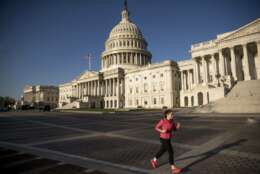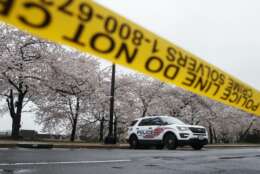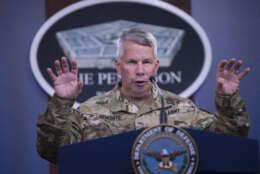Covid-19
-
March has been a game-changer for billions of people. The pandemic has produced a variety of mid-life crises for just about every thinking person.
March 31, 2020 -
The American Federation of Government Employees and the Kalijarvi, Chuzi, Newman & Fitch law firm say employees working through the coronavirus pandemic without the proper protective gear are entitled to hazardous duty pay.
March 30, 2020 -
At least 40% of employees at the Department of Veterans Affairs could be absent at any one time during a severe coronavirus outbreak, the agency estimated. VA's inspector general and employee unions have also expressed concerns with staffing and supply shortages.
March 30, 2020 -
Childcare is becoming an even bigger issue in the military as COVID-19 spreads.
March 30, 2020 -
Essential employees? Yes, to do the work. But important employees? I guess not.
March 30, 2020 -
Requests already coming into consortium focusing the nation's supercomputing capacity on the coronavirus.
March 30, 2020 -
In today's Federal Newscast, small business government contractors already are feeling the impact of the government slowdown because of the coronavirus. So the Pentagon is adjusting some contracts to help get companies some much needed cash.
March 30, 2020 -
The Thrift Savings Plan is scheduled to implement a series of new lifecycle funds later this summer, if the coronavirus pandemic doesn't derail the scheduled rollout.
March 30, 2020 -
The Army Corps of Engineers is working with 114 cities to plan and build temporary hospitals to care for coronavirus patients. For cities with convention centers, those sites are an increasingly-attractive option.
March 27, 2020 -
Given its current financial situation, only set to worsen under the pandemic, USPS and its unions fear the agency may not have the cash on hand to continue operations past this summer.
March 27, 2020 -
Even as the coronavirus threat widened, the administrative law judges of the Social Security Administration were told they had to work in their offices until the end of this week.
March 27, 2020 -
The Justice Department sent guidance to state and local law enforcement telling them to allow federal employees to travel to and from work during lock down.
March 27, 2020 -
With seemingly everyone teleworking, the only way people can meet is through some awkward application or another. Teleconferencing can also mean fresh cybersecurity challenges.
March 27, 2020 -
In today's Federal Newscast, the Defense Department saw cases in the services more than double since Monday.
March 27, 2020 -
The coronavirus pandemic has created a tsunami of connections from users’ personal devices to Federal networks. Identity fraud, phishing attacks, malicious code, and advanced persistent threats are all rising. MobileIron Federal CTO Bill Harrod discusses how to handle increased requirements for telework during this time.
March 27, 2020















